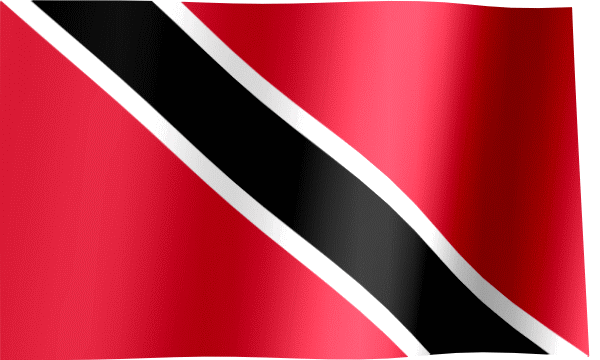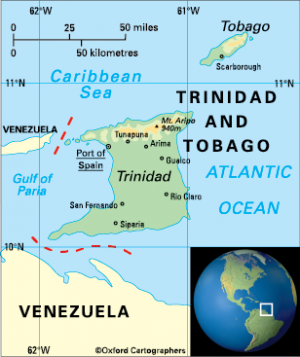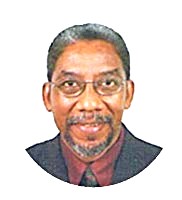|
Getting your Trinity Audio player ready...
|
Reading Time 4 mins

As we mark 58 years of our journey as an Independent nation, we have the opportunity to look back on and evaluate six decade-long journey towards the aspirations that filled the hearts of our citizens that night when the Union Jack was lowered for the last time and as a sovereign people, we took up the challenge of charting our own course.
We must examine our present with an eye on the past 58 years and assess our progress in our nation-building project, in the important areas of the economy, politics and governance, cultural and social development, nurturing our youth and caring for our seniors, as well as caring for our physical space which sustains us.
On this occasion, amid challenges of economic depression, compounded by the effects of a global pandemic almost exactly a century since the last faced by mankind, I choose to look back at the economic sphere.
Into Independence

Between 1956 and 1973, the Trinidad and Tobago Government formulated and implemented three Five-Year Plans, regarded as Development Programmes.
In the first Development Programme, 42% of public expenditure was earmarked for infrastructure towards roads and bridges, electricity and water in descending proportion. A significant portion of the infrastructural works were to be undertaken at the Local Government level.
About equal allocations were made to agriculture, health, harbours and ports, industrial development, inter-island steamers and the smallest allocation was for “labour and social services”.
The allocation to Tobago was 7% of expenditure.
Agriculture was touted as important “for the diversification of the economy”. Industrial development “along the lines of…Jamaica and Puerto Rico”, and tourism “with particular reference to Tobago”[1]. The “building industry with particular respect to public buildings” was described as a service industry.
Allocations were made for primary and secondary education and building of a teachers’ training institution.
The “provision of welfare services and essential amenities for the workers on the job” was described a major element of the Development Programme 1958-62, leading up to Independence. The provision of housing, water and health facilities with development of recreation grounds and development of facilities for youth groups and community organisations were all identified.
The objectives of the Second Development Programme 1964-68 were “to change the structure of the economy…achieve a satisfactory rate of growth…and to provide productive employment for the increasing labour force”.
The basic assumption was “that the rate of growth of the production of crude petroleum would decline …subject … to satisfactory results of the exploration efforts … on the east coast”.
The “main long-run objectives” stated in the Third Development Plan 1969-73 were:
- To reduce considerably the extent of structural unemployment
- To diversify the economy by strengthening other sectors other than petroleum
- To bring the economic activities under greater measure of local control to reduce the dominance “by external decision making”.
Assessing the Planning Experience
Returning to this initial period of Five-Year Plans permits assessment of that experience in our development thrust.
Firstly, it is noteworthy that after 1973, the end of the third such plan, the concept and practice of long-term planning was largely abandoned with the emergence of the first oil boom in the year 1973. The next attempt at long-term planning by Government was in the development of Vision 2020 in the first decade of the 21st century.
Secondly, several of the objectives stated in those early Five-Year Plans remain largely the unfulfilled promises of Independence that fuelled the discontent that led to the 1970 Revolution and which remain what appear to be illusive goals up to the present.
The illusive diversification of the economy away from hydrocarbon dependency, the unchanged structure of the GDP contributions of the various economic sectors, the unfulfilled dreams of a striving tourism sector, strong agriculture and elimination of ‘external decision-making’ and insulation against external shocks – all of these continue to evade the success columns of our Independence experience.

Thirdly, the First and Third Plans were authored by the solo effort of the Premier and Prime Minister. While the Second did include a process of consultation, “the overall direction of policy remained with the Prime Minister”.
Similarly, in the much later Vision 2020 plan, there was widespread involvement in the initial analysis and planning phases, but implementation remained the province of the Prime Minister and his Cabinet.
Unfortunately, these planning efforts, led by the occupants of high offices, have failed to include the broadest participation in the preparation of such plans or in the execution and evaluation where some consultation was permitted.
Given the current state of our economic landscape, are we satisfied?
After 58 years, in the true ‘spirit of Independence’, given the current exhortations to unity and working together to solve our problems, can we do things differently to ensure that we do not have to return to the same considerations that have occupied our concerns for development at the end of the 6th decade and beyond?
New initiatives from the citizens and their organisations are called for.
[1] Quotations from the pages of Forged from the Love of Liberty (1981)

Clyde Weatherhead, a Citizen calling for the Reinfusion of the Spirit of Independence, was part of the youth of the 1970 Revolution. Coming out of that most volatile period of the history of Trinidad and Tobago has fostered his deep interest in matters of history and political and social development. Clyde has written and published several books; his first, Speaking Out: A Collection of Letters and Other Writings – 1991 – 93, and his most recent published this month, Robber Man: The Cultural Contributions of Brian Honoré and Pegasus and the Making of Project Independence. Clyde is a practicing Attorney at Law and served as Secretary/Treasurer and President of the Public Services Association of Trinidad and Tobago during the 1990’s. Check out his blog, http://clydeweatherheadsite.net/discussion.html and his Amazon Author page: https://www.amazon.com/-/e/B07KTBGSWD.
